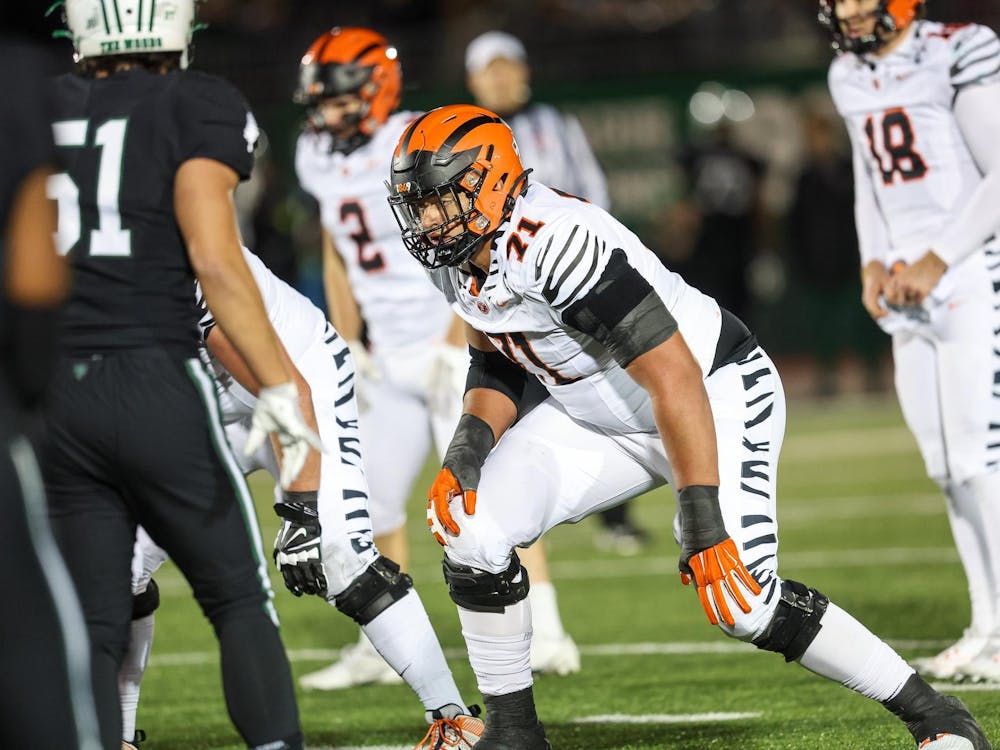A game is only as good as its rules, which, in turn, are only as good as those who enforce them. Let the transitive property do the rest of the hard work for you: umpires, officials, judges, referees — I think it’s been well understood for some time that they are just as essential to professional sports as the athletes themselves. What the recently-solved labor dispute between the NFL and its referees has demonstrated, however, is that they may in fact be more important. “Impossible!” the countless multitudes who read this column will no doubt exclaim. “Witchcraft!” There, there. Let me explain.
The replacement referees were doomed from the start, of course. The only candidates who would agree to do it were those who didn’t mind being blacklisted by the union — that is, referees who knew they stood no chance of ever being good enough to worry about the unions at all (which exist only on the college and professional levels). They came from places far and wide and comical: They had officiated in the depths of the arena league, or in high schools, or, in a few particularly memorable cases, had been fired by the Lingerie Football League for incompetence. There was a near-unanimous sentiment heading into the season that they would fail, most likely in spectacular fashion. And they did.
Implicit in that sentiment, though, is the notion that the replacements were simply not well equipped enough to handle the position, which is to say that the position is a talent-based one. That might seem obvious, but until we were forced to confront it this year, I don’t think many people really followed the idea to its logical endpoint. The NFL conducts rigorous and continuous behind-the-scenes evaluations of each of its officials: their tendencies, their biases, their strengths and weaknesses. As surely as Eli Manning is a more competent quarterback than Mark Sanchez, certain referees are simply better than others in an objective sense. It’s a strange thing to consider. They’re supposed to be arbiters, after all.
When Russell Wilson’s last-second Hail Mary a few Mondays ago was ruled a game-winning touchdown rather than an interception, it was, in the eyes of the vast majority of viewers, a blown call. It was the wrong call instead of the right one, and there was no room for ambiguity. Instead, it was straight to hypotheticals and assignation of blame: A standard referee in the same situation would have come to the right conclusion. The integrity of the game was being desecrated, and on and on from there.
But here’s the dirty little secret of all team sports, and American football in particular: Nobody knows anything. This is a game in which half a dozen men can converge on a single ball carrier in a driving rainstorm, with an infinite amount of physical permutations in play, and, after the wreckage is through, an official can spot the ball two inches shy of the first down marker without pretty much anyone batting an eye. In which the definition of “holding” seemingly mutates depending on the context. Referees don’t really know, within centimeters, where the ball should be spotted; they can’t see every hold or pass interference; and there are a hundred more unmentioned uncertainties, just like those, that they do not and cannot have a handle on. Nevertheless, it’s their job to pretend they do, for the rest of us.
The game is chaos — officials give us the impression, true or not, that there is order in it. If the players go and new, less talented ones replace them, then yes, although the product we are left with is inferior, it is still the same product. Bad officiating, on the other hand, is an existential risk; it threatens to bring to the surface all the lies we tell ourselves in order to enjoy the show. Poorly officiated games don’t feel fun, not for the fans and most times not even for the winner, because it suggests randomness and thereby pointlessness, and we want things to have a point. Referees are the key: Without them, whatever small, stupid sliver it is within us that lets us believe in a point would wither and die.
There’s no way at all of knowing whether a standard NFL referee — say, Mike Carey — would have made a different, more “correct” call at the end of that Packers-Seahawks game. But it’s nice to think so.







